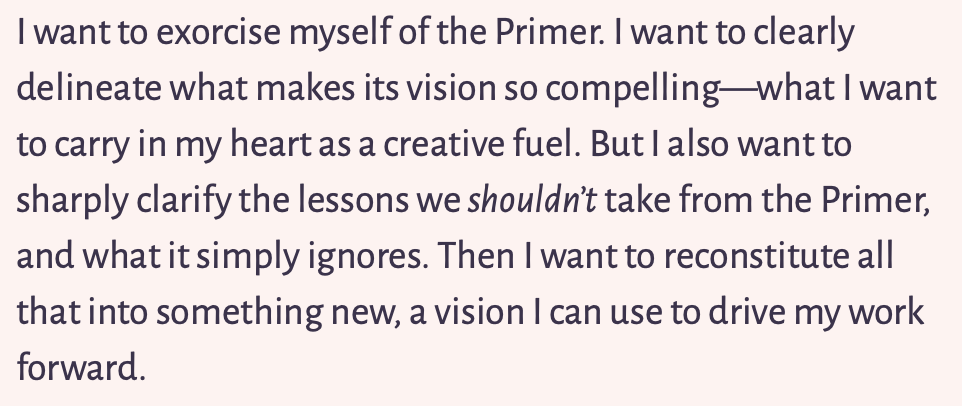Alan Kay suggests that good inventors are like Michelangelo, both imagining the ceiling of the Sistine Chapel—and also spending years on their back painting it! Part visionary, part obsessive craftsperson.
I wonder about auteurs in film—hundreds of staff doing detail work!
I wonder about auteurs in film—hundreds of staff doing detail work!
Maybe one principle is that it’s possible to (partially) delegate to someone else who is themselves Michelangelo-like in that way.
Like: maybe Wes Anderson’s set dressers are just as visionary and obsessive as he is, so he can let them do some of the “painting”?
Like: maybe Wes Anderson’s set dressers are just as visionary and obsessive as he is, so he can let them do some of the “painting”?
Likewise in games: maybe an auteur-like direct can “outsource” only to a level designer who will themselves bring auteur-like sensibilities—and not to a “technician”? @Jonathan_Blow suggests experiences along these lines in his comments about The Witness’s team.
I wonder if the important element is not so much whether he painted it single-handedly as much as that he was up there, on his back, “with candle wax dripping into his eye” for four years alongside maybe-assistants. That’s not delegation!
https://twitter.com/cortexfutura/status/1308460921677910019
• • •
Missing some Tweet in this thread? You can try to
force a refresh
















